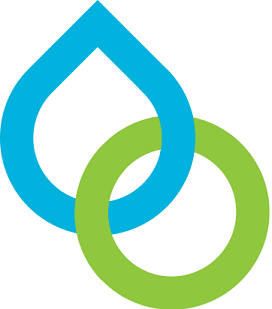#ActionForWater
#ActionForClimate
Water Docs is about inspiring a love for water and the future of our climate that leads to tangible ACTIONS to protect the environment for generations to come.
Do you question how your own actions could make a difference to the big picture of a global water and climate crisis?
You’ve heard it before: small steps in the right direction can change the world. In addition, much larger steps are needed at policy, manufacturing and corporate levels. They will only listen when society as a whole speaks up, not only with words but actions. Actions like signing petitions, buying sustainable products, boycotting unsustainable products, repairing rather than replacing, eating less meat, wasting less food, learning about systems, to name a few. What #ActionForWater will you take?
Here are a few of the many things you can do to protect, conserve, learn about, and celebrate water.
And please, let us know your ideas of what else should be added here.
Conserve water with these tips
Take shorter showers and catch the water as it warms up for house or garden plants.
Take a moment to thank the water before you drink it.
Install a low flush toilet if you don’t have one.
Catch and use rainwater. Water outdoor plantings in early morning or early evening for less evaporation.
Rethink how you garden. Avoid peat and use native plants adapted to our climate. Join local initiatives like Carolinian Canada.
Use a filter bag or add a lint filter when you wash fleeces and other synthetics to keep microplastics out of rivers and oceans (be sure to check the reviews). Wash a full load with an eco-friendly laundry strip or soap berries rather than powder or liquid detergent.
Make wiser choices
Avoid plastic as possible (plastic bags, single use water bottles, straws, disposable takeout containers and coffee cups). Join a zero waste group.
Find alternatives to disposable takeout containers. Bring your own. Check your city for a zero-waste food app.
Purchase re-useable items from reputable sources.
Reduce consumption of red meat (especially beef) and products like almonds that use lots of water.
Eat only sustainable fish.
Buy less stuff – repair rather than replace when possible, or buy second-hand.
Monitor your water footprint; here’s a water footprint calculator. You can also learn about how much water is embedded in what you use. For example, producing one pair of jeans uses 10,000 litres of water or more.
Explore your local water
Use your local waterways: walk, swim, canoe ….
Vacation in provincial or federal parks.
Learn about your local watershed.
Read the Great Lakes Guide and explore.
Go on Lost Rivers walks
Consider participating in an Indigenous-led local water walk or ceremony.
Join local organizations like Friends of High Park, Friends of Black Creek, Glen Stuart Ravine, etc.
Clean up a ravine or a shoreline; clean the storm drains on your street when they clog after a rain.
Learn and take individual & collective action
Volunteer with water protection and climate change organizations.
Research water topics that catch your interest.
Join the campaign to end drinking water advisories on First Nations.
Oppose water privatization.
Consider how your community could become a blue community.
Consider hosting a Water Docs Where-You-Live online film screening and discussion.
Read Traditional Knowledge: Considerations for Protecting Water in Ontario.
Communicate your concerns about water to municipal, provincial and federal politicians.
Write letters protesting poor water conditions in Indigenous communities.
Tell a grade 7 or 8 teacher about the Water Docs @ School program.
Selected groups to work with to affect the future of water
Assembly of First Nations
Learn about the struggle for safe drinking water on reserves.
Council of Canadians
Sign up for their newsletters and fact sheets, and get involved locally. Support the Blue Community movement.
Great Canadian Shoreline Cleanup
Lead or join a shoreline cleanup near you.
Lake Ontario Waterkeeper
Goal: creating a swimmable, drinkable, fishable future. Discover their 5 recommendations for improving Toronto’s harbour water quality. Read their blogs about local water issues.
Lost River Walks
Investigate their lost river maps of Toronto and go on some of their walks. There’s a similar group in Vancouver.
Ocean Wise
Check which sustainable fish to have for dinner. Break your plastic habit.
Drawdown Toronto
Join the effort to educate and help develop policy initiatives to respond to climate change and all its water-related aspects. Also check out Project Drawdown, which has created a global database of the most effective existing solutions to climate change. Stay tuned for other local events about reducing carbon and addressing climate change.
Get involved in the January Food Waste Challenge; you can take the initial survey now.
Sea Shepherd
Founded in 1977 by Captain Paul Watson in Vancouver, Canada, with the mission to protect and conserve all marine wildlife.
Waterlution
Follow the Water Innovation Labs around the world and check out their school programs.
Wellington Water Watchers
Fight bottled water with this Guelph-based water protection group. Check their list for all of their water protection campaigns.
Ontario Water Works Association (OWWA)
A network of professionals in the drinking water industry, offering conferences, publications, and seminars on the forefront of water technology.
Water Environment Association of Ontario (WEAO)
Professional organization dedicated to the protection of water and the environment with benefits including workshops, seminars, conferences, and networking opportunities.
Resources
Water Walker by Joanne Robertson (read this book about Grandmother Josephine Mandamin with children)
Drawdown website and book edited by Paul Hawken
Life Without Plastic (a practical step-by-step guide) by Chantal Plamondon
Seasick, by Alanna Mitchell & Macleans article on what 2050 could look like
Whose Water Is It Anyway? by Maude Barlow
The Big Thirst, by Charles Fishman
“If it can’t be reduced, reused, repaired, rebuilt, refurbished, refinished, resold, recycled or composted, then it should be restricted, redesigned or removed from production.”


















